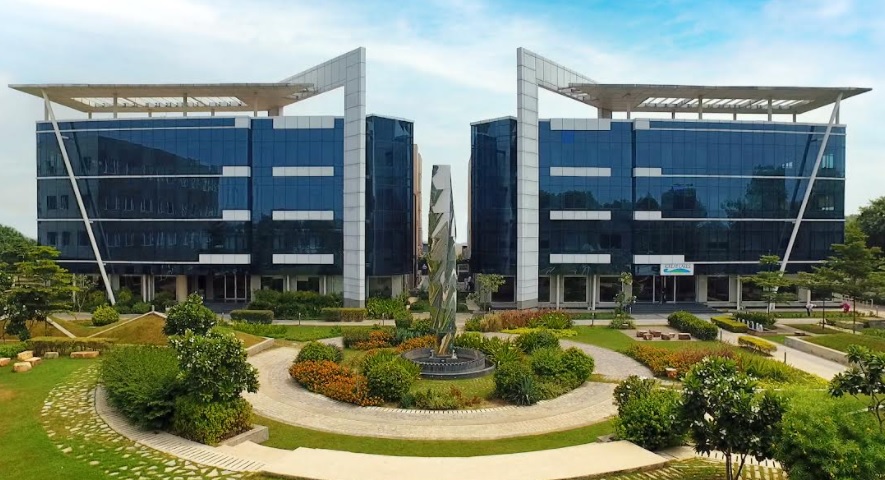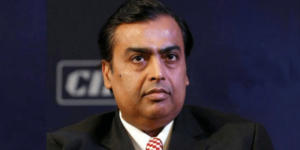The COVID-19 pandemic has transformed businesses forever and there is no going back to the old normal. The key takeaways from the flagship annual management conclave ‘Sapience 2021‘ organised by the Great Lakes Institute of Management, Gurgaon is that the pandemic accelerated the adoption of digital technology across sectors; adoption of AI and ML has increased exponentially, work from home for employees is here to stay and most bank & other financial transactions will continue to happen on digital platforms.
 |
Great Lakes Institute of Management, Gurgaon
The theme of the conclave was ‘Purpose Driven Business in the Post Pandemic World‘.Industry leaders from across the domains of Marketing, Entrepreneurship, Human Resources, Finance, Analytics, Artificial Intelligence, Machine Learning participated in online panel discussions on business in the post-pandemic world. The event was conducted as a series from 24th November to 9th December, 2021.
The COVID pandemic took the world by shock. Companies faced overwhelming and unprecedented challenges during the pandemic. To survive the pandemic, companies had to quickly shed the old way of doing business and reinvent themselves by being agile and accelerating digital transformation.
“COVID-19 has accelerated the adoption of digital technologies by several years and many of these changes are permanent. I do not think any industry can go back to the old normal. The new normal is here to stay. Staying relevant and competitive in this new business and economic environment, will require companies to adopt new strategies and practices,” said Dr. Debashis Sanyal, Director at Great Lakes Institute of Management.
Experts at the marketing conclave agreed that the industry will have to adapt quickly to rapid proliferation of marketing technology, if companies have to survive and thrive in a post-pandemic world.
Key panelists Kapil Chanana, Chief Growth Officer, Eupheus Learning; Anurag Sharma, Vice President, Clark’s Lifestyle India; Solai Shakthivel, Senior Vice President-Buying & Merchandising, Metro Cash & Carry and Payel Basu, Director-Marketing, Zycus concluded that technology is reshaping the industry and organisational changes ignited by technology adoption is driving innovation and sustainability.
Marketing in the post-pandemic world is likely to be driven by digital technology. During the pandemic, consumers moved towards online channels. Companies have responded in turn by shifting to interacting with customers through digital channels. Ms Payel Basu, Director-Marketing, Zycus said, “Last one year was transformative for all technology players. The biggest change the industry has seen is an acceleration in digitization by 7-10 years. We had to find newer ways to do marketing. From in-person sales and face-to-face events, we moved to webinars. There was a drastic shift to persona focused messages. We adopted a persona-based segmentation while being agile and responsive in adding value to all our customer’s needs across geographies and segments.”
She further added, “Digitization has enabled the sustainability agenda globally. In Europe many organizations today prefer cloud based solutions. We have also seen an increased interest from federal segment for digitization, governments are going deeper in adopting technology. The need of the hour was to tailor marketing messages to each persona, whether it was the Chief Procurement Officer or the Chief Technology Officer, the crux was to articulate what value will the product bring to them.”
Panelists on a discussion on changing nature of human resources in the post-pandemic world, believe that companies will now have to contend with an employees market, given the increase in attrition levels worldover. The focus today is on employees, especially their mental health.
Globally, attrition levels are rising, with millions of employees leaving their jobs and chasing new opportunities as part of the “Great Resignation“.“Creating employee engagement activity is no longer about organising birthday parties. We need to take care of employees’ mental health and make them feel valued. The concept of employee benefit has also changed. In pre pandemic time, work from home was a benefit but now it is a priority,” said Jitendra Das, Director-HR, MoveinSync & WorkinSync, adding that there has been increase in trust deficit between employees and employers. “In the post-pandemic world, instead of tracking employees in the conventional way, we need to design employee objectives to meet the company’s goals. The line of thinking has changed. Employees can be anywhere in the world and still deliver,” he said.
The other panelists at the session included Shatrunjay Krishna, Group Head-Organisation Design, Learning & Development, GMR Group; Siddharth Nagpal, Senior Professional-HR, New Development Bank and Anmol Singh Grewal, Head-HR, Ashok Leyland.
For the banking industry, the pandemic turned out to be a blessing in disguise, according to panelists on the session on the changes in the banking and fintech industry in the post-pandemic world. The pandemic fast-tracked digitisation and proved that all banks must have a digital plan. “During the pandemic banks had to move to online only models,” said Abhinav Nehra, EVP & Head-Partnerships & New Business, Network International. “The transformation was incredible. Consumers preferred digital platforms, which forced banks to move almost all their interactions online.”
Banks should analyse the data they are seeing from their digital channels, to better serve their customers. “There is so much data available today that can be optimally used to build credit scores as well as lean service models to serve customers. This can help banks make decisions on lending and financial inclusion especially in no credit bureau emerging markets. Banks should use the crisis to identify how the customer journey can be improved,”Nehra said.
The other panelists who spoke at the session are Teena Jaisinghani, Head of Credit, Axis Bank, Singapore; Vineet Nagpal, Sr. Executive Director & Head of Change Management, Intertrust Group; Ashutosh Tiwary, Head-Credit Policy & Underwriting, Razorpay and Sandeep Das Gupta, General Manager-Finance, Mankind Pharma.
For the Artificial Intelligence/Machine Learning industry, the pandemic acted as a Chief Digital Officer for all organisations, achieving more success in a year than it has in decades. During the pandemic, more and more companies invested in Artificial Intelligence to allow for remote working, to improve customer experiences and to reduce costs. “This was a volcano that was building up before the pandemic and it erupted during the pandemic time,” said Avinash Chandra, Senior Director, Capgemini. “A lot of the conversations that we were having with our clients around AI and ML translated into actual business opportunities during the pandemic. Clients called us during the pandemic asking us if we could deliver on all the things that we talked about in the pre-pandemic time.”
The other panelists who spoke at the sessions are Aarthi Bharadwaj, SVP-Analytics (APAC), Essence Global; Swapnil Tambi, Director AI & ML, BNY Mellon; Vineet Shukla, Group VP and Head of Data, Mahindra Group and Vish Bodapati, CEO, Hedgeloop; Mr. Sethu Madhavan,Vice President, Biocon Biologics, Mr. Jayaram Mummadi, Vice President – Projects, Zen Technologies; Mr. Prashanth Koduganty, Senior Director, Optum Global Solutions; Mr. Akhil Srivastava, Director – Planning & Logistics – ISEA, Anheuser-Busch InBev; Ms. Shreedha Singh, Co-founder, TAC – The Ayurveda Co.; Mr. Kunnwar Vijay Parmar, Founder & CEO, Skilleit; Mr. Udayan Bose, CEO & Founder, NetElixir.
About Great Lakes Institute of Management, Gurgaon
Great Lakes Institute of Management, Gurgaon Campus, established in 2010, has emerged as one of India’s most innovative business schools pioneering the adoption of cutting-edge technology in business decision making. In the year 2019, Great Lakes, Gurgaon, received the prestigious AMBA accreditation and became the youngest Indian B-school to receive the accreditation. The institute was also ranked among the top 5 emerging management business schools by the National HRD Network (NHRDN) for the year 2018-2019. In 2021, it also received the NBA Accreditation for its PGDM program. The PGPM at Great Lakes Gurgaon is ranked 12 in India by BusinessWorld.
Located in the corporate hub of Gurgaon in Delhi NCR, the campus has extensive engagement with corporates catering to their human capital requirements while also benefiting from the perspectives of senior leaders actively participating in design and delivery of the programs. Great Lakes, Gurgaon, was the first b-school in India to offer an Analytics specialization in 2013 and to offer specialization in Artificial Intelligence and Machine Learning in 2018. The campus offers two full time programs – PGPM & PGDM – apart from executive programs. Students also have access to extensive perspectives from CXOs as well as gain practical experience through live projects helping them develop into Business Ready managers ready to deliver from Day 1.
![]()










![Read more about the article [Investor Summit 2021] What the tech investment landscape looks like in a post-pandemic India](https://blog.digitalsevaa.com/wp-content/uploads/2021/04/Image30fd-1617252699313-300x150.jpg)